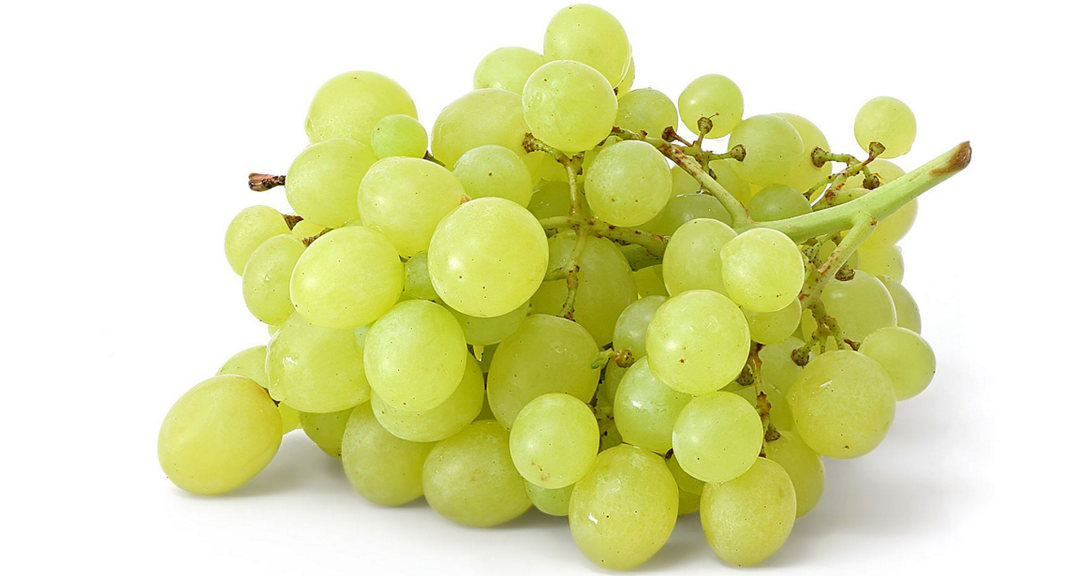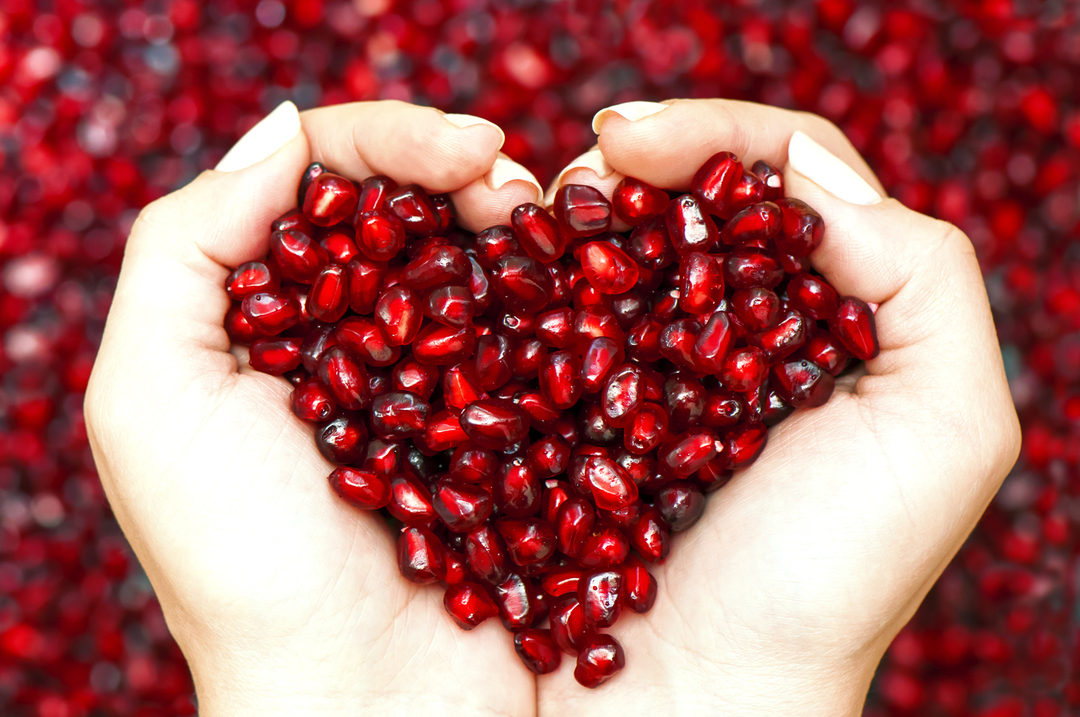What you can not eat pregnant
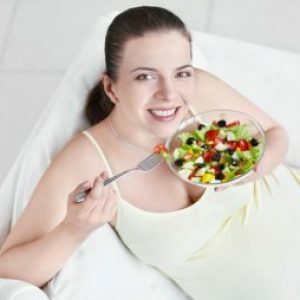
The statement that pregnant women are strictly prohibited from eating certain products, does not always have a sound ground.Rather, a woman, in an interesting position, should be more attentive to her diet, prefer healthy and organic food, eat moderately and portionwise.However, some products should be limited or excluded, although the same harmful and unhealthy food is often covered by the ban, which is not recommended not only to pregnant women, but to all others( fast food, alcohol, smoked products, etc.).
Important: should remember that nutrition during pregnancy is the foundation of the health of both the expectant mother and her baby.There should be no deficiency of vitamins or minerals, as well as excessive absorption of foods that provoke allergies( chocolate, eggs, strawberries, tomatoes).
Table of contents: Basic principles of proper and healthy eating of a pregnant woman What should not be eaten by pregnant women in the first trimester Recommendations for proper nutrition in the first trimester What should not be eaten by pregnant women in the second trimester List of recommended foods in the second trimester What should not be eaten by pregnant women in the third trimesterOn nutrition in the third trimesterBasic principles of proper and healthy nutrition of a pregnant woman
Nutrition of a pregnant mother should be basedcamping on a few basic principles:
- Ideally there should only natural and high-quality products grown in an ecologically clean area.
- The daily diet should be balanced and complete with respect to the content of vitamins, amino acids, micro- and macro elements in it.
- Daily it is necessary to use all groups of products to ensure a complete diet.
- You should eat as little as possible food that has undergone a deep treatment.
- It is ideal to take steamed, stewed, baked products, that is, those that have been subjected to the most gentle heat treatment.
- From the preservation and products containing various kinds of stabilizers, preservatives, emulsifiers and dyes should be discarded.
- In the presence of allergic diseases in women, it is important not to use during pregnancy any products that are allergens.
- It is necessary to thoroughly cope with food, so that the process of digestion is as effective as possible and does not bring discomfort.
- Fractional food is an ideal option for a pregnant woman.It allows you to satisfy hunger, do not gain extra pounds, provide the body and mother, and the child with all the necessary substances.
- It's important not to overeat.It is not necessary, as they say, "eat for two".It will bring only a feeling of a full stomach, heaviness, heartburn, and possible problems with the stool.
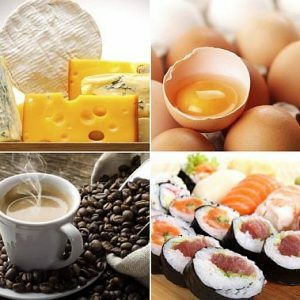 Note: during pregnancy is forbidden to sit on any diet( yourself), unless it is prescribed by your health care provider on the basis of having a certain illness.
Note: during pregnancy is forbidden to sit on any diet( yourself), unless it is prescribed by your health care provider on the basis of having a certain illness.
For a day you need to eat vegetables and fruits up to 4 times, and if possible, eat them better with a peel( if possible).Proteins( meat, eggs, fish) are best used in the morning.This is a heavier food, which requires more time and energy to digest.
In the second half of the day, vegetable and sour milk products should be preferred - they promote good digestion and are easily digested.Also do not forget that such products as lentils, dried fruits, cabbage, it is necessary to eat together with sources of vitamin C. This vitamin helps to assimilate the gland.
To avoid food poisoning and diseases such as salmonellosis, dysentery, botulism during pregnancy, and breastfeeding under any pretext can not be:
- poorly processed meat( steak with blood);
- dishes with raw eggs( including homemade): mousse, cheesecake, ice cream, etc.;
- unpasteurized soft cheese( Camembert, Bree);
- eggs( raw, soft-boiled);
- pates of all kinds.
What should not be eaten in the first trimester
The first 3 months is the period of laying down all the organs and systems of the unborn child, so at this time one should be very selective about what the pregnant woman is eating. In the first trimester, a pregnant woman should not eat at all or should limit the following products as much as possible:
-
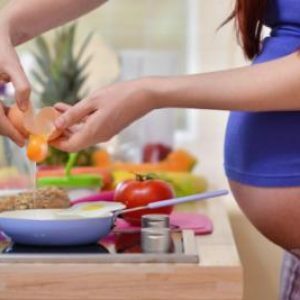 fish and meat smoked products( intensify thirst);
fish and meat smoked products( intensify thirst); - bread made from flour of the highest quality;
- fresh baked goods( these are simple carbohydrates, which quickly transform into fat and extra pounds, increase the blood sugar level);
- confectionery products with cream, especially protein( do not undergo heat treatment);
- vegetable margarine;
- chocolate;
- semi-finished products;
- canned food;
- mayonnaise;
- any alcohol;
- concentrated fish and meat broth( it contains a lot of extractive substances that increase allergic organism and appetite);
- eggs in fried form;
- coffee;
- crab sticks;
- sweet soda;
- any fast food;
- fungi;
- snacks( crisps, crunches);
- sausages;
- Citrus( allergy possible);
- very fat cottage cheese, sour cream, meat( have an extra load on the digestive tract).
See full list »
Recommendations for proper nutrition in the first trimester
Necessarily in the daily diet of a pregnant woman in the first trimester should include foods with sufficient fiber.It normalizes intestinal motility, and is also an excellent source of microelements and vitamins.
In this period it is equally important not to forget about dairy products - the main source of calcium for the mother and fetus, as well as fish( phosphorus).Instead of simple carbohydrates you need to eat complex, which split longer, which means they give a long feeling of satiety and do not provoke a jump in blood glucose.
List of recommended products during this period:
- whole grain bread with bran;
- fruit drinks;
- clean water;
- fruit and berries;
- butter( in a small amount);
- vegetables( raw, boiled, stewed, in salads);
- low-fat sour-milk products( yoghurt, fermented baked milk, yogurt, cottage cheese) and milk;
- greens;
- honey;
- cereals( buckwheat, rice, bulgur, oatmeal, millet, yak);
- cheese is unsalted;
- sea fish( salmon, hake, mackerel);
- olive oil;
- lean meat( veal, chicken, beef, turkey, rabbit) in cooked or baked form;
- nuts;
- eggs( limited to 4 per week);
- jam.
See full list »
Note: the well-established nutrition of the expectant mother in the first trimester will allow normalizing the digestive tract, as well as the urinary system.This in turn favorably affects the symptoms of early toxicosis, reducing their manifestation and prevents the development of complications.
What can not be eaten by pregnant women in the second trimester
From 14 to 26 weeks, an appetite usually appears in a pregnant woman.It is caused by the subsidence of signs of early toxicosis.The fetus is already actively growing and developing, and it still requires many different useful substances, they come from the mother's body.Avoid those products that provoke the processes of putrefaction and gassing of the intestines.In addition to discomfort, it can also cause problems with the stool.
List of products not recommended in the II trimester( including those that can not be eaten in the 1st trimester):
- beans;
- cakes;
- sausages;
- pancakes;
- finished products( cutlets, pancakes, dumplings, dumplings);
- cheese with mold;
- smoked products;
- carbonated water;
- sushi;
- marinades;
- horseradish;
- fish caviar;
- stroganina;
- pepper;
- milkshakes;
- fried eggs.
See full list »
List of recommended products in the second trimester
It is important that food in the second trimester of pregnancy is not only nutritious, but also easy, which will provide regular stools.After all, very often pregnant women suffer from constipation, this negatively affects the condition of both the future mother and the baby in the womb.Regular evacuation of the intestine twice a day - a pledge of normal health, good sleep, healthy skin, etc.
In the second trimester of a pregnant woman, you can not eat:
- yesterday's bread with bran;
- biscuit cookies;
- albumen omelette;
- juices from vegetables( carrots) and berries( currant, apple, pear);
- green vegetables rich in folic acid;
- liver;
- dried fruits( dried apricots, figs, raisins, prunes);
- grenades( contain iron).
What should not be eaten by pregnant women in the third trimester
During the third trimester, the fetus is actively growing, as the time of delivery is approaching.A woman should eat right, and do not gain weight more than normal, which happens very often.Therefore, it is necessary to limit the amount of protein in the diet( not more than 100 g per day), and carbohydrates( 300 g), and the amount of fats - to increase due to plant.
In III trimester of pregnancy, it is desirable to exclude products such as:
- yeast bread;
- kefir;
- is sweet;
- jam;
- semolina;
- filbert;
- honey;
- kvass;
- sweet compote;
- vinegar;
- spices;
- salted fish;
- peanuts;
- fatty sour cream;
- broths( rich in fish, mushrooms, meat);
- cocoa;
- rice;
- fat;
- citrus fruits.
View full list »
Recommendations for nutrition in the third trimester
The daily diet of a pregnant woman should be included( in addition to the permitted products in the 1st and 2nd trimesters):
-
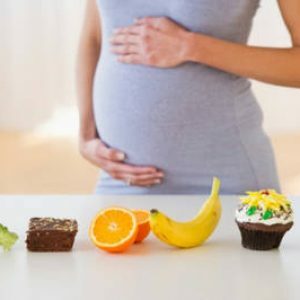 decoction of dried fruits;
decoction of dried fruits; - vegetable soups;
- oatmeal cookies;
- juices( pomegranate, carrot, beetroot);
- steam omelet;
- broths on vegetables;
- aspic( fish, meat);
- different vegetables( zucchini, Bulgarian pepper, cucumbers, pumpkin, tomatoes);
- leaf salad;
- marshmallow;
- spinach;
- walnuts.
It is worth noting, the fact that scientifically proven the need for the correct and rational nutrition of a woman who is carrying a child.The diet of a pregnant woman directly affects the course and duration of gestation, the process of development and formation of the fetus.Proper nutrition of the future mothers helps to give birth to a child with normal weight without injuries and pathologies.
Betsik Julia, obstetrician-gynecologist


